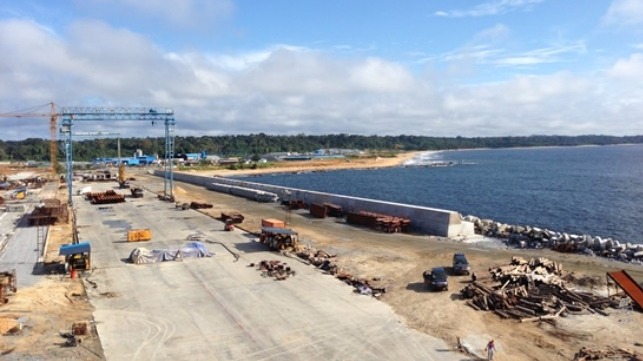What Defines Success and Failure for Africa's Blue Economy Projects?

One of the potent ways for Africa to integrate its industries and rich natural resources with global supply chains is to revamp the blue economy. For years, this sector has been exploited at artisanal level, limited by inefficiencies due to underdevelopment. However, since the 2012 United Nations Conference on Sustainable Development in Rio de Janeiro, African countries’ national agendas are pivoting towards blue economy development. The African port sector attracted over $15 billion in private investment between 2005 and 2019, according to a report by Okan Partners and Africa CEO forum. The concern, though, is how to get value for money from mega-scale ocean economy development projects while evading the grandiosity trap.
This was the subject of a recent article published in Frontiers of Marine Science by eminent scholars of African blue economy. The article ponders what should define a successful blue economy initiative in Africa; it departs from the traditional economic focus of new blue economy investments to consider the question of how to balance development with ecological conservation and the inclusion of local communities.
The current pursuit of blue growth in Africa is undermined by inadequate knowledge and technological capacity, a point well illustrated in the exploitation of coastal fisheries. A study by FAO in 2014 estimated that Africa loses $3.3 billion in potential earnings from its fisheries, considering that 25 percent of the combined marine catch around Africa is taken by non-African countries. If you add the IUU (illegal, unreported and unregulated) fishing component, a region like West Africa loses $2.3 billion, revealing a stark reality of how poverty manifests itself in Africa despite rich natural resources. A similar case could be made of energy discoveries in Africa, where development is carried out by international corporations - often in contravention of environmental sustainability principles, with host communities failing to accrue any significant socio-economic benefit.
But as we look at these historical problems in Africa’s development trajectory, we need to question whether our respective governments are still committing the same mistake of diverting the benefit of investments away from local communities. The study identified that the top-down approach in implementing ocean economy projects in Africa often led to exclusion of coastal communities. As a result, the economic gains for these populations were limited, while the projects often result in the destruction of their traditional livelihoods.
Take the case of Kribi Port Project in Cameroon, one of the biggest Chinese investments in Africa. The $1.3 billion port development has been a source of frustration for 300 inhabitants - the former residents of Lolabe village, which was destroyed to make way for the port. Though they had been promised compensation amounting $43 million, available data shows that only $26 million was paid, with reports indicating that the remaining amount was embezzled by corrupt politicians. Despite the projected economic benefit to Cameroon’s economy, it has come with a huge cost to coastal communities and the environment. At stake is the world’s second largest tropical forest in the Congo basin. Home to important species and critically endangered pangolin and lowland gorilla, it is estimated that thousands of hectares of this jungle will be cleared by the time Kribi port development is fully completed in 2035. The port also creates access to some of the most sought-after tropical hardwood for the Asian market. With the destruction of traditional livelihoods and little government support, the project has fueled locals’ animosity towards national authorities, widening the governance gap in the country.
This unsustainable approach in the development of the blue economy is common across other such projects in Africa, including the Vridi Canal Project in Cote d’Ivoire, the Lamu Port construction in Kenya and the Sandpiper marine phosphate mining project in Namibia.
However, there are a host of other blue economy projects that can be said to be said to be an embodiment of a sustainable approach to exploiting the ocean. They tend to be people-centered and strive to overcome marginalization of youth, women and indigenous communities.

that matters most
Get the latest maritime news delivered to your inbox daily.
One such project is Vezo Community Fishers in Madagascar, where a community of fisherfolks have successfully created a locally managed blue economy initiative to address the decline of the octopus fishery. It involves Locally Managed Marine Areas (LMMAs) supported by government policies that allow toe Vezo community to use traditional laws and indigenous knowledge in managing marine resources. International donors have been involved to provide technical and material support. In addition, inclusion of seafood export companies in the early stages of the project ensure that the community has market access for their products. This model is been replicated in similar projects along the East African coastline with great success for marine resources conservation and coastal communities’ economic empowerment. They include Mikoko Pamoja (Mangroves Together) - which leverages international carbon markets - and Seaweed Farming, both projects in Kenya.
Compromising on social equity and ecological sustainability can soil governments’ noble intentions of positive economic outcomes through blue economy development. The study recommends a collaborative blue management approach that involve all the stakeholders to reap greater benefits in developing the blue economy in Africa.
The opinions expressed herein are the author's and not necessarily those of The Maritime Executive.
